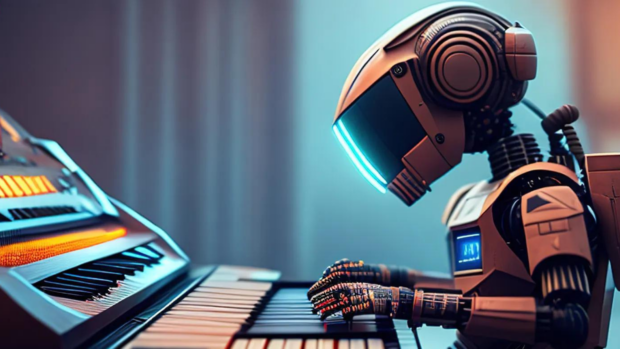Google and Universal Music are engaged in discussions regarding the licensing of artist voices and tunes for AI-generated songs. The use of artificial intelligence programs has allowed people to create unconventional songs featuring their favorite musicians. However, Universal Music has expressed concern that this trend undermines the careers and identities of the artists. On the other hand, creative individuals worry that AI technology might diminish their ability to earn income from their talents. Thankfully, Google and Universal Music are working on new technology to ensure that artists can profit from AI songs that use their voices and melodies. This development paves the way for music streaming services like Spotify to follow suit and provide similar opportunities for smaller creators. In this article, we will delve into how Universal Music and Google plan to monetize AI-generated songs and explore the advancements made in AI music software. Additionally, we will discuss how Google and Universal intend to address the issue of AI songs. According to Ars Technica, numerous free tools allow people to create unique covers of famous songs using AI. For instance, Frank Sinatra’s voice can be heard singing a hip-hop track like “Gangsta’s Paradise.” Another popular example is Johnny Cash “bopping” to the tune of the song “Barbie Girl,” which coincides with the release of the latest Barbie film. In response to this trend, Jeffrey Harleston, the general counsel for Universal Music, spoke with US lawmakers to voice his concerns. He stated that an artist’s voice is a valuable part of their livelihood and public image, and it is wrong to exploit it, regardless of the means. Universal Music and Warner Music have been in talks with Google about developing a tool that allows artists to earn revenue from AI songs that utilize their likeness. Warner Music CEO Robert Kyncl believes that with the right framework in place, AI can be used to pay tribute to artists through user-driven content like cover versions and mash-ups. However, Kyncl acknowledges that this system may not appeal to everyone and respects the artist’s choice to participate or not. In April, Universal Music requested that streaming platforms such as Apple and Spotify prevent AI services from using their songs without payment or permission. Specifically, they asked these platforms to remove access to their music library for developers using it to train AI models. Meanwhile, Google is actively developing an AI tool called MusicLM, which generates music from text descriptions. For example, it can create a hybrid of K-Pop and Classical music that evokes a “spacey, otherworldly” ambiance and a “sense of wonder and awe.” It is worth noting that many artists have spoken out against people using their voices in AI-generated songs without permission. Drake, for instance, expressed frustration after someone used his vocals in a song without his consent. Sting also emphasized the potential battle between “human capital” and artificial intelligence, hinting at the challenges presented by AI technology. On a more positive note, researchers like Paul J. Zak have successfully used AI to predict popular hits by analyzing the emotional response elicited by different song aspects. This AI tool boasts an impressive 97% accuracy rate in predicting hit songs. Spotify could potentially integrate this technology into its DJ upgrade, which uses AI to recommend songs to listeners. Spotify’s virtual DJ, Xavier “X” Jernigan, plays a significant role in this feature. Lastly, an AI model called RadioGPT can create radio shows that include news updates, mimicking a real radio experience. In conclusion, Google and major record labels are actively exploring ways to monetize AI songs. Universal Music stresses the importance of protecting intellectual property in all its forms. They are currently working on an AI tool that would charge users for using an artist’s voice in AI-generated content. While this program has not been released yet, it is not the only AI song program being developed, as numerous tech firms are pursuing the application of artificial intelligence in media. For more information on these developments and other digital trends, visit Inquirer Tech.
Denial of responsibility! VigourTimes is an automatic aggregator of Global media. In each content, the hyperlink to the primary source is specified. All trademarks belong to their rightful owners, and all materials to their authors. For any complaint, please reach us at – [email protected]. We will take necessary action within 24 hours.


